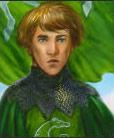Forum
Welcome Guest |
|
|---|---|
 Author Author |
Topic: |
|---|
| Hercynian |
|
||||||||
| parluggla |
|
||||||||
| Gandolorin |
|
||||||||
| parluggla |
|
||||||||
| Hercynian |
|
||||||||
| Gandolorin |
|
||||||||
| tarcolan |
|
||||||||
| Hercynian |
|
||||||||
| Gandolorin |
|
||||||||
| Hercynian |
|
||||||||
| Gandolorin |
|
||||||||
| Hercynian |
|
||||||||
| Gandolorin |
|
||||||||
| Hercynian |
|
||||||||
| Gandolorin | |||||||||
| Gandolorin |
|
||||||||
| pv |
|
||||||||
| pv |
|
||||||||
| Gandolorin |
|
||||||||
| pv |
|
||||||||
| pv |
|
||||||||
| Hercynian |
|
||||||||
| Members Online |









 Tolkien's tabula rasa
Tolkien's tabula rasa

 (had some issues with an elderly computer and browser!) Great discussion!
(had some issues with an elderly computer and browser!) Great discussion!
